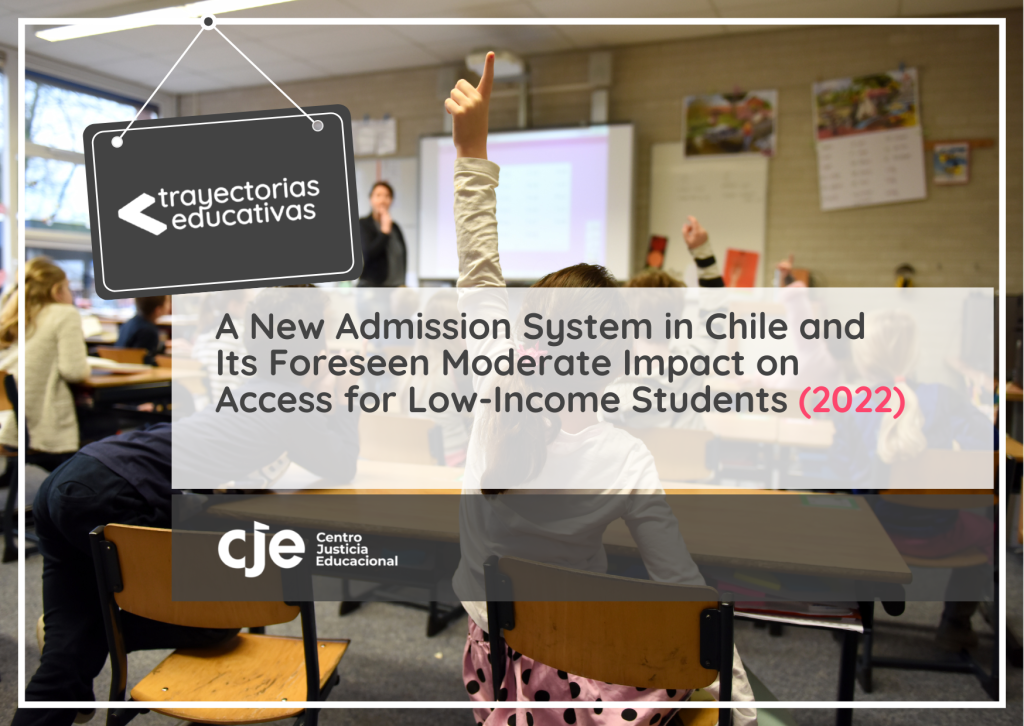AUTORES: Honey, Ngaire & Carrasco, Alejandro.
AÑO DE PUBLICACIÓN: 2022
INSTITUCIÓN: CJE
DISPONIBLE EN:
https://journals.sagepub.com/doi/10.3102/01623737221093374
RESUMEN:
Chile is known for universal school choice policies and a high level of economic segregation. In part, segregation has been linked to selective school admission policies. Chile implemented a centralized school admission system (New School Admission System), where PK–12 schools must accept any applicant, and lottery assignment is used for oversubscription. We exploit a natural experiment due to the phased implementation across grades and regions to attempt to detect any effects of this policy on access for and representation of low-income students using grade-within-school and year fixed effects. Eliminating admissions barriers may contribute to increased educational opportunity, but the impact may be limited by the multiple structural factors shaping inequality in Chile. We find little short-term change in access for low-income students.



